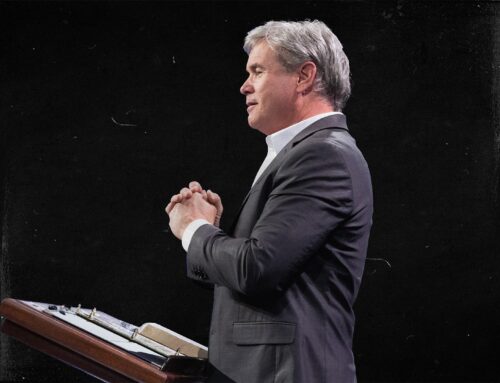American WorldView Inventory 2025 – Report #6
Americans Possess Contradictory and Unbiblical Views on Moral Truth
May 15, 2025
George Barna
Dear ________,
Most Americans no longer believe in absolute moral truth—and it’s changing everything. The latest report from the American Worldview Inventory 2025 reveals that U.S. adults are increasingly guided by feelings, not biblical principles, when making moral decisions. Even among churchgoers, the majority now reject the idea of moral absolutes, opening the door to confusion, contradiction, and cultural compromise.
What happens when truth becomes a matter of opinion?
Here are key insights from my latest AWVI 2025 report, “Americans Possess Contradictory and Unbiblical Views about Moral Truth”:
Here are key insights from my latest AWVI 2025 report, “Americans Possess Contradictory and Unbiblical Views about Moral Truth”:
- Two-thirds of adults reject absolute moral truth—including 69% of Catholics and 61% of mainline Protestants. Even half of theologically-identified, born-again Christians (considered to be spiritually conservative and a cornerstone of evangelical Christianity)—admit to rejecting absolute moral truth.
- Emotions are the new compass. Three out of four adults (74%) say feelings—not Scripture, science, or tradition—determine right from wrong. That is a tacit admission that we—and neither God nor any other external source—are the sole or primary judge of truth in our lives.
- Moral pluralism is now mainstream. Nearly six out of 10 people believe conflicting moral views can all be right. Even among those with a biblical worldview, 23% buy into that contradiction.
- Almost half of Americans argue that the constant shift of cultural views proves moral absolutes don’t exist. Nearly half (45%) say that because moral ideas change over time and across cultures, moral absolutes can’t exist.
- Even lying is acceptable. One-third of adults say lying to protect their reputation or interests is morally defensible.
Particularly concerning, the parents of children under the age of 13 are especially likely to deny absolute moral truth. This is not only a reflection of the younger generations’ growing discomfort with moral boundaries, but also a sobering indicator of what today’s children are being taught—implicitly and explicitly—about right and wrong. When parents themselves are unclear or unconvinced about biblical standards, the next generation grows up without a reliable moral anchor.
This widespread confusion about moral truth is not harmless—it’s a blueprint for cultural chaos.
When a society dismisses objective morality, it invites instability, division, and misplaced trust in cultural or political voices claiming to define right and wrong. History shows that rejecting God’s moral order leads to loss of liberty and human dignity. The only viable solution is a return to biblical truth.
Churches and individual believers who compromise truth become reflections of culture, not agents of biblical transformation. It’s more important than ever to teach why the Bible can be trusted, what moral truth is, and why it must be seen as absolute, or we will continue to lose both credibility and influence. And our nation will continue to suffer the consequences.
At the Cultural Research Center, we are committed to exposing these worldview trends so that believers—and the Church—can respond with clarity, courage, and conviction. Your partnership in this effort is vital—and deeply appreciated.
Blessings,
George Barna
Director of Research, Cultural Research Center
Faculty, Arizona Christian University










Leave A Comment
You must be logged in to post a comment.